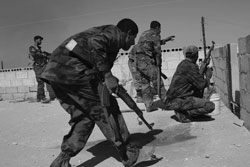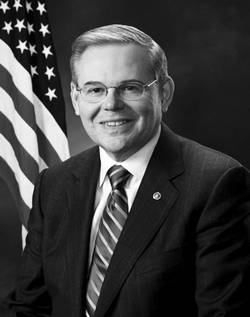Recently, much controversy has been made over Russia’s air strikes in Syria. The target of these air strikes has been the Islamist extremist group, the Islamic State.
According to Reuters, Russia’s planes had flown 64 stories, striking 63 targets, and destroying 53 fortified positions on Sunday Oct. 11.
Professor of Political Science, Dr. Saliba Sarsar said, “Russia’s military activities and buildup in Syria are designed to prop up the embattled Syrian regime of Bashar al-Assad, fight against Islamic extremists, including ISIL and the al-Nusra Front, and protect its assets that consist of, among others things, an air base near Latakia and a naval supply and maintenance base at Tartus.”
He continues, “This enhanced Russian presence comes at a time when the United States is shying away from a deeper involvement in the Syria crisis, limiting its actions to air strikes against ISIL, funding and arming elements of the Syrian opposition, and assisting Syria’s refugees.”
According to Reuters, the strategy of the Obama Administration, which has led a separate bombing campaign against the Islamic state for a year, failed to establish strong ties with the fighters on the ground. Washington, and Moscow have the same enemy in the Islamic State, but have differing viewpoints on where the conflict should see an end.
When asked about President Putin’s leadership in this situation, Obama said, ““If you think that running your economy into the ground and having to send troops in, in order to prop up your only ally is leadership, then we’ve got a different definition of leadership.” The President continued, “My definition of leadership would be leading on climate change, an international accord that potentially we’ll get in Paris. My definition of leadership is mobilizing the entire world to make sure that Iran doesn’t get a nuclear weapon.”
The U.S. and its recurring European allies see the Syrian president stepping down as the best way to resolve these issues, with the Russian Government seeing this as an opportunity for the international community to make an effort to fight extremism together.
Freshman business administration student, Camilla Gini, said, “The Syrian president stepping down would be best because it’s the most peaceful thing to do.”
There are many ways to go about resolving Syria’s issues, with a lot of differing views on the subject, Sarsar said, “Resolving Syria’s problems requires not more military interventions but diplomatic inroads. United States-Russian cooperation in this regard is a key step.” He continued, “Both powers, together, can make a real difference by balancing the exigencies of national interests and international decency and law and by working with others in Syria and beyond in support of the basic needs of the Syrian people.”
Then added,“In so doing, the international community practices its responsibility to protect, albeit in a limited way. Humanitarian aid flows more easily into Syria. Syria maintains its sovereignty and territorial integrity, while it restructures itself to be more inclusive and democratic.”
Specialist Professor of Public History at the University, Melissa Ziobro said, “Antagonism between the U.S. and Russia is the last thing anyone needs right now, particularly in this volatile region of the world.” Then said, “Because nothing happens in a vacuum. Even the most cursory study of past wars shows us how quickly events can spiral out of control on a global level. As you process the news each day, as you consider what policies you will support and how you will cast your votes, remember- diplomacy must always be our first resort.”
According to Ziobro, “One of the challenges that I’ve had throughout this heartbreaking situation inside of Syria is, is that you’ll have people insist that, you know, all you have to do is send in a few, you know, truckloads full of arms and people are ready to fight.”
IMAGE TAKEN from Associated Press



